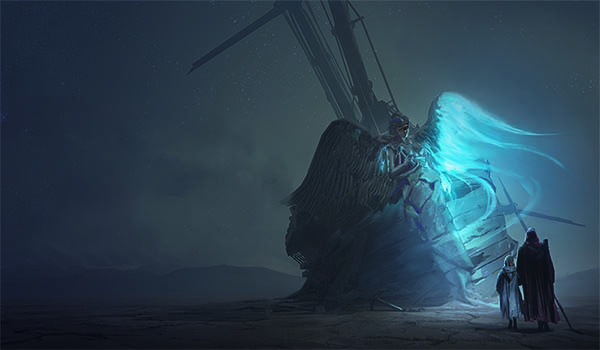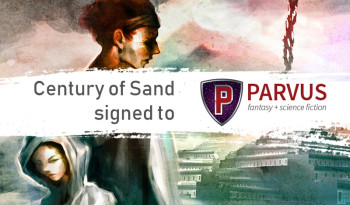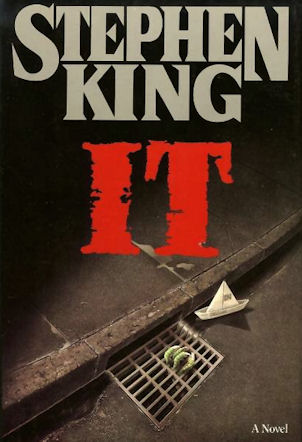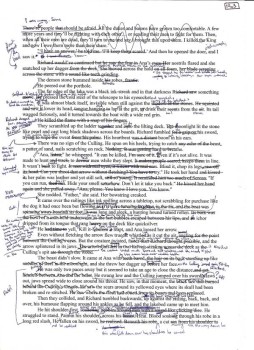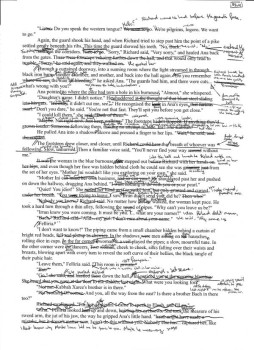PICK THE RIGHT ENVIRONMENT
Take a look at all the places you write. Living room? Bedroom? Home office? Local cafe? On the train?
Now, in which of these places are you most productive?
For me, it’s a) the home office and b) on the train. Why? In my office, I’m at a desktop. I sit upright, professional. No distractions in line of sight, and my wife works in the same room as me so she’ll call me out if I get distracted by cat vids. As for the train, there’s no internet to pull me off-task.
Now, where was I doing most of my writing over the past four years?
In the living room, on my laptop. Slumped on the couch, TV in the background. Why? Because my laptop charger was in the living room. Because there was more space there for snacks. Because it was comfortable and nobody would poke me if I got off-task.
Shockingly, I didn’t get much writing done.
Your environment contributes to your productivity and you have to be honest about where you get your best work done. Are you avoiding that spot? Why? Because it’s less comfortable? Because it doesn’t enable your bad habits?
Find your most productive writing spot and stick with it.
CHOOSE THE RIGHT AMBIANCE
What do you need around you to complete your best work?
Some people need mood music. Some people need white noise. Others, the scent of a vanilla-infused candle, and silence. You need to figure out what assists your writing, and what’s pulling you off task.
For me, music with lyrics destroys my productivity. Low-key ambient stuff is great. White noise is best of all.
And yet, I spent the last four years working with background noise, like the TV, Spotify or my podcasts (I’m sorry, Night Vale. You bring out the worst in me).
It wrecked my work.
It took time for me to acknowledge that I was using these things to fill the space in my head when words wouldn’t come. Pretty soon, there was no space left.
I’m back to white noise now. Or, on occasion, lyric free ambient tracks on low volume. The words come a lot easier now.
Create a sensory environment that supports your writing.
ALWAYS HAVE A PLAN
After twelve novels, I figured I’d conquered my fear of the blank page.
I was wrong.
From 2014-2018, I would sit down at my laptop with no plan in mind. Not for a chapter, not for a scene, not for a conflict.
I figured I’d written so much that the structure of a good story was innate. Spoilers: that’s bullshit. No goal means no direction, and soon you’re flipping desktops, catching up on AGDQ, re-reading the entire Achewood archives (twice…)
But I never experienced that problem while editing The Ragged Blade. Why? Because I had an excellent team behind me who gave me direction. They worked with me to identify problems, structure solutions, and give me deadlines.
Clear plans & pathways. Who would’ve thought it’d lead to quality writing?
I know many of my writing friends hate writing to a strict outline. I’m not asking for anything strict. No battle plan survives contact with the enemy, after all. But walking into battle with no plan at all is suicide.
So I forced myself to switch up my routine. Now I always spend the first half hour of the day creating a handful of notes that will guide my writing. They aren’t extensive. Maybe a single scene, maybe a few linked scenes, maybe a single line of dialogue that sparks a conflict. But I never, ever, sit down at my computer without a plan.
Take a little time to plan your work and you’ll banish the paralysis of uncertainty.
SMALL, ACHIEVABLE GOALS BEAT BIG, INTIMIDATING GOALS
A couple years back I wrote an article called Why 1000 Words a Day is Easy and Quick. The gist: 100 words is a small, achievable goal. 1000 words is 100×10. Do ten small things a day, and you hit your target. Do that every day for a year and you have 365,000 words.
Some time between 2013 and now, I forgot that lesson.
I used to do 3000 words on a bad day, 6000 words on a good one. So I stopped thinking about small goals. I’d wake up and say, cool, let’s do 1000 words before breakfast. 3k before lunch. Add another 1k after dinner.
But once my job started taking up more of my day (and evening, and night, and weekends…) I couldn’t find the time to write 1000 words. And I’d lost the habit of setting small, measurable, achievable goals.
Most days I didn’t write anything.
So I went back to basics. I don’t write 1000 words at a time any more. I do 100 (200 if I’m feeling feisty) and then stop, and congratulate myself, and do it again. I measure myself against the clock – can I do 100 words before 1pm? Okay, cool, that wasn’t too hard. Can I do it again? Not quite, but it’s a start. How about another 100 by 1:15?
And so on, and so on.
By focusing on small tasks, I’ve found myself reaching my daily wordcounts faster and with less stress. And I find I can fit these little tasks into small time slots. Five minutes before I have to leave for work? If I have a plan, I can do 100 words. Ten minutes at the end of a lunch break? Lock the door, close Chrome, open the planning doc, write 200 words.
Forget hitting 1k, 2k, 3k. Just do the paragraph. Set yourself a strict time limit. Get it done. Repeat.
Little, simple goals quickly turn into big achievements.
INTRINSIC VS EXTRINSIC MOTIVATION (AKA REWARDS AND DEPRIVATION)
Intrinsic motivation: something internal that drives you to succeed. For example, writing a book because it makes you happy. Bashing out a draft because it improves your overall craft. Writing as personal therapy, and so on.
Extrinsic motivation: an external reward pushing you forward. Example: writing a book because you’re on a deadline, bashing out a draft because you’ll celebrate completion with a cake, and so on.
I believe the best (or at least, the most productive) authors have a mixture of intrinsic and extrinsic motivation. They want to improve their craft. They find satisfaction in good storytelling. But they’re also rewarding themselves along the way, either with chocolate, relaxation time, five minutes on Facebook, hard cash, etc, etc.
I write because I love writing. But I don’t always love writing. Some days it’s a trial. Some days I want to burn my manuscripts and go back to flipping burgers. And throughout 2014-2018, my intrinsic motivation fell through the floor.
That’s where extrinsic motivation comes in.
I got myself back in the writing seat by rewarding myself every time I hit a small milestone. What’s a good reward? That’s up to you, but I recommend the thing you wish you were doing instead of writing. If there’s nothing you’d rather do than write, then congrats! You don’t need any extrinsic motivation that day. But that feeling won’t, can’t, last forever.
My rewards: five mins of social media. Playing a single round on a mobile game. I get to do that every 200 or so words. Every 1000 words, I get something bigger. Lunch. A cup of coffee. A ten min slice of Pet Collective.
What’s absolutely necessary is that you don’t cheat. Extrinsic motivation doesn’t exist if you can break the rules and grab a cup of coffee any time you want. You have to work for it, or the pressure to write vanishes.
Extrinsic rewards shouldn’t overtake intrinsic rewards. I don’t mind treating writing as a job, but if you’re writing 100% for the next treat (whether that’s a snack or a paycheque), then writing becomes a bad job. But a balance between the two? That’s the sweet spot.
And the greatest extrinsic motivator of all time? The need to pee. Deny yourself the toilet until you hit a small wordcount goal and damn, you will hit that goal fast. (note – a SMALL wordcount, like, “I can’t go to the bathroom until I hit the next 100 word milestone.” Not “I can’t use the bathroom until I smash out this 3000 word chapter.” Be sensible. Don’t damage your body in pursuit of big wordcounts.)
By going back to small goals, rewarding myself regularly, and depriving myself of necessary things until I hit certain milestones, I pushed my writing output through the roof.
Use small rewards to keep yourself pushing to the next goal, but be strict and never break your own rules.
IN CONCLUSION, YOUR HONOUR
Get yourself in the right place to write. Somewhere without distractions, where you feel you can devote the necessary attention to your work.
Turn off the music, or at least find music that won’t interfere with your prose.
Start each writing session with a small plan that will banish the paralysis of the blank page.
Set small, achievable goals with strict time limits. Repeat them over and over.
Motivate yourself with small rewards, like a blast of social media, a snack, or a trip to the bathroom.
The result? I’ve gone from writing 1000 words in an average week to 3000 words a day. Century of Sand 2 is flying. The God Factory edits are going great. An as-yet unnamed fantasy novella is half-done.
I’ve got my groove back. If you’ve lost yours, I hope this helps you find it.
